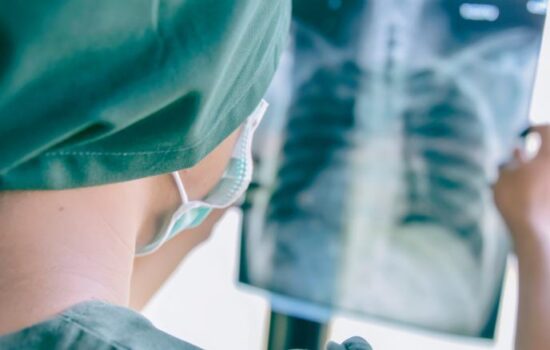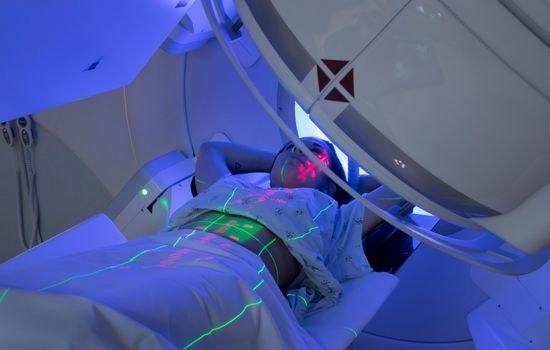Important Traffic Notice: Due to road construction on Southwest Highway directly in front of our Chicago Ridge location, traffic may be heavier than usual. Please plan ahead and allow extra time to arrive safely. Thank you for your patience and understanding!
September 13, 2024
What to Expect If You Have Lung Cancer Surgery

Advancements in lung cancer treatments are providing more hope than ever before. Patients are living longer and fuller lives after diagnosis. Additionally, lung cancer screening for eligible individuals makes it possible to detect cancer earlier. The earlier cancer is found, the more effective surgery will be. Several lung cancer surgical procedures are available depending on the location and stage of the cancer. Your cancer treatment team will determine whether surgery is right for you.
How to Determine if Surgery is Part of the Lung Cancer Treatment Plan
Patients diagnosed with early-stage lung cancer are much more likely to undergo surgery than those whose lung cancer was diagnosed at a later stage. More advanced lung cancer may have spread throughout an entire lung or both lungs. When this is the case, cancer may also be present in the lymph nodes and possibly other organs. A systemic treatment such as chemotherapy or targeted therapy will be more likely as a first line of treatment.
A medical oncologist who specializes in lung cancer typically leads the treatment planning team, which also includes a thoracic (chest) surgeon and a radiation oncologist. Together, they will review the specific diagnosis and create a plan that includes a set of recommended treatments, including surgery, and the best timing of each.
If surgery is included in the treatment plan, the patient will set up a separate surgical consultation appointment to discuss the type of surgery and what to expect.
Types of Lung Cancer Surgery
Lung cancer surgery involves removing the tumor(s), nearby lymph nodes, and a margin of healthy lung tissue. The type of surgery used depends on the size of the cancer and how much of the lung is affected.
Lobectomy
The lungs are made up of sections called lobes. There are three in the right lung and two in the left. You don’t have to have all of the lobes to be able to breathe, making this type of surgery possible if the cancer is confined to one lobe.
Lobectomy is the removal of an entire lung lobe. This is the most commonly performed lung cancer surgery and is considered the most effective. Currently, clinical trials are underway to determine if less invasive surgeries can provide similar outcomes for tumors that are two centimeters or smaller.
Wedge Resection
Wedge resection removes the tumor and a wedge-shaped margin of lung tissue around it. This technique is used when an entire lung lobe cannot be removed. There is some possibility that cancer cells are left behind in the portion of the lobe that remains.
Segmentectomy
Segmentectomy is similar to wedge resection, except it involves the removal of more lung tissue and lymph nodes. This technique is also used when an entire lobe cannot be removed.
Pneumonectomy
Pneumonectomy involves the removal of the entire lung and is used when the tumor is located near the center of the chest. However, this procedure comes with higher risks than those of a lobectomy. Your lung cancer doctor will assess your heart and lung health to determine if this surgery is a suitable option.
How Is Lung Cancer Surgery Performed?
Lung cancer surgery can be done in two ways: minimally invasive surgery (thoracoscopic or robotic surgery) or open surgery (thoracotomy). Minimally invasive is used when appropriate because of smaller incisions and a shorter recovery time.
Minimally invasive thoracic surgery accesses the inside of the chest through a few small incisions rather than large ones. Surgeons can perform this procedure as a video-assisted thoracoscopic surgery (VATS) with a camera and special instruments or with surgical robotic assistance. This type of laparoscopic surgery typically results in a shorter recovery.
Thoracotomy involves making a large incision between the ribs to reach the lungs in the chest. This technique allows the surgeon better visibility to remove tissue as needed.
Preparing For Lung Cancer Surgery
What to Expect Before Surgery
Before surgery, certain lung function tests are necessary to ensure you are healthy enough for the procedure. Once it’s confirmed that surgery can proceed, you should follow the instructions regarding what foods, drinks, and medications you are allowed to consume before the procedure. If you smoke, consider quitting now to promote overall wellness and positively influence your recovery. There are several organizations in the Chicago area that can help people stop using tobacco, such as the Illinois Tobacco Quitline and the Chicago Tobacco Cessation Network.

Now is a good time to determine your post-surgery support team at home. These will be the people who will assist you as you recover. Additionally, review your health insurance coverage with the surgeon’s office so you will know what to expect regarding billing.
What to Expect After Surgery
After your surgery, you will be taken to your room to start the recovery process. You may feel pain and grogginess upon waking, which is natural.
Chest tubes inserted during the surgery to help drain fluid and blood from your chest cavity will be removed once the fluid drainage slows down. If the tube needs to stay in place while you are at home, your care team and someone who will care for you will teach you how to manage it.
The type of surgery you had, how much lung tissue was removed, and your health before surgery typically influence your recovery time. Your care team will encourage you to get up and move around as soon as possible after surgery. Doing so can help you regain strength and return to your daily life faster. Breathing treatments may also be administered to enhance lung function. Before leaving the hospital, your oncologist or nurse will provide instructions for at-home care.
Your main goal after surgery should be to focus on your recovery. Rely on your support system. Let them help with grocery shopping, cooking meals, and cleaning the house. You will need to focus on any physical therapy assignments to help you regain some of your lung capacity.
Ask your doctor about any restrictions you may have and what types of activities you should be doing. It's not uncommon for shortness of breath to accompany certain activities. This improves over time for some patients, but it can be permanent for others. Let your lung cancer specialist know if you experience any physical pain, emotional pain, or discomfort that could warrant palliative care. Palliative care can help manage the symptoms and side effects you may experience, ultimately improving your quality of life.
Possible Side Effects of Lung Cancer Surgery
Cancer treatments, such as lung cancer surgery, can be accompanied by significant side effects. Knowing what to expect in terms of side effects can help you better prepare for your recovery and address potential challenges. Some of the side effects associated with lung cancer surgery include:
Visible surgical procedure scars
Wound infection
Chest pain and discomfort, especially when inhaling deeply
Difficulty breathing
Fatigue
Complications such as bleeding, blood clots, pneumonia, or damage to surrounding organs
Your surgeon will provide detailed information about what you can expect based on your specific situation and the type of surgery you will undergo.
Will I Need Other Lung Cancer Treatments After Surgery?
After a successful cancer operation, unseen cancer cells might still be left behind which can be treated with radiation therapy. If the cancer was already affecting the lymph nodes, chemotherapy will likely be the next step. You might have several types of treatment after surgery including these or others such as targeted therapy (more common for non-small cell lung cancer) and immunotherapy. These are necessary to be sure all of the cancer cells are destroyed.

Lung Cancer Care and Treatment in South Chicago
If you are diagnosed with lung cancer, the specialists at Affiliated Oncologists are here to develop a treatment plan and assist you. Our lung cancer doctors also work closely with lung cancer surgeons in the South Chicago area. Our treatment facilities are in Chicago Ridge, Hazel Crest, Mokena, and Orland Park, Illinois.
Categories: Lung Cancer